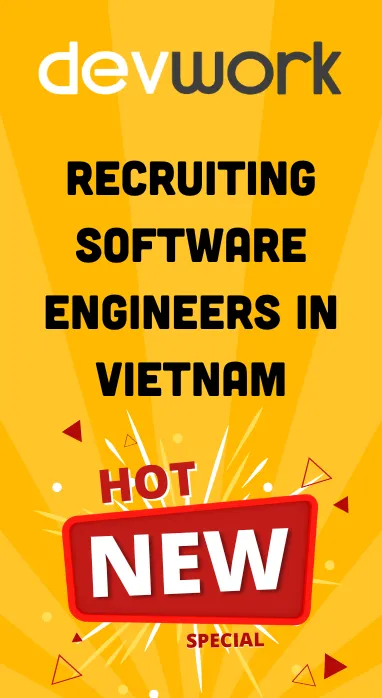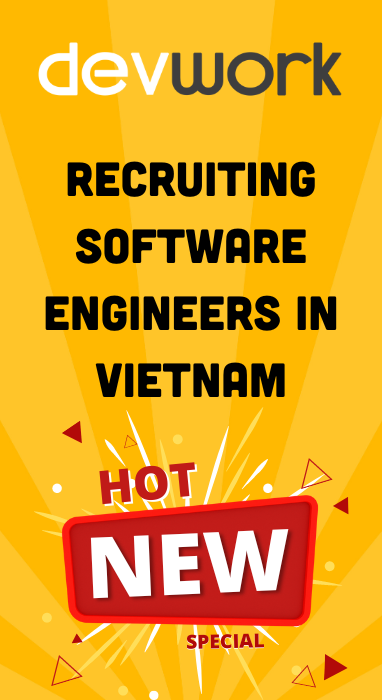
Attracting and retaining top talent has become a significant challenge for companies nowadays. Employer branding has emerged as a crucial strategy to address this challenge. This blog post delves deep into the concept of employer branding, exploring its importance, key components, strategies, and benefits. By the end of this guide, you'll have a comprehensive understanding of how to establish and enhance a compelling employer brand that resonates with both potential and existing employees.
What is Employer Branding?
Employer branding is the process of building and promoting the image of a business to attract, effectively, talent and create the interest and trust of potential employees in that business. In the information technology (IT) industry, effective employer branding is an important factor to attract talented employees and retain high-quality human resources. The importance of employer branding lies not only in attracting and retaining talents, but also in creating the trust and loyalty of customers, partners and the surrounding community. A strong employer image allows businesses to attract the best candidates, increase employee volunteering and commitment, and garner interest and trust from customers.
In a competitive job market, employer branding serves as a powerful differentiator. Companies with strong employer brands attract high-caliber talent more easily, reduce recruitment costs, and experience better employee retention rates. A positive employer brand also enhances overall organizational performance and fosters employee engagement.
To create a strong employer brand, it takes a combination of factors such as:
Defining Your Employee Value Proposition (EVP)
The EVP outlines the unique benefits and opportunities that employees gain from working at your company. It encompasses factors such as compensation, career growth, work-life balance, company culture, and professional development. Crafting a compelling EVP requires a deep understanding of your target talent pool's preferences and aspirations.

Showcasing Company Culture
Company culture is a critical component of your employer brand. Sharing stories, testimonials, and experiences from current employees provides insight into your organization's values, work environment, and camaraderie. Authenticity is key – portraying a genuine culture is more appealing to candidates than embellished narratives.
Consistent Brand Messaging
Effective employer branding requires consistency across all communication channels. From job descriptions to social media profiles, ensure that your messaging aligns with the values and culture you aim to convey. This consistency builds trust and familiarity with potential candidates.

Leveraging Employee Advocacy
Your current employees are your brand ambassadors. Encourage them to share their experiences and insights on platforms like social media or employee review sites. Positive word-of-mouth from genuine employees can significantly enhance your employer brand's credibility.
Here are strategies for Crafting an Impactful Employer Brand
1. Target Audience Understanding
Identify and understand your target audience – the types of candidates you're looking to attract. This understanding will help tailor your messaging to resonate with their preferences, career goals, and values.
2. Emphasizing Diversity and Inclusion
A commitment to diversity and inclusion (D&I) should be integrated into your employer's branding efforts. Showcase your company's initiatives and achievements in fostering an inclusive environment where everyone feels valued.
3. Employee Experience Enhancement
A positive employee experience is the cornerstone of a strong employer brand. Invest in training, development, and opportunities that contribute to employees' personal and professional growth. A satisfied workforce becomes a powerful advocate for your brand.

4. Crafting Compelling Content
Create valuable content that provides insights into your company's work culture, projects, and employee achievements. This content could take the form of blog posts, videos, podcasts, or social media updates. Regularly sharing engaging content builds interest in your organization.
5. Leveraging Technology and Social Media
Effective employer branding requires consistency across all communication channels. From job descriptions to social media profiles, ensure that your messaging aligns with the values and culture you aim to convey. This consistency builds trust and familiarity with potential candidates.
Measuring and Refining Your Employer Brand
Measuring Employer Brand Success
Implement metrics to assess the effectiveness of your employer branding efforts. These may include metrics like the number of quality applicants, employee engagement levels, turnover rates, and feedback from recruitment partners.
Continuous Improvement
An employer brand is not static; it evolves over time. Regularly seek feedback from employees and candidates to identify areas for improvement. Adjust your strategies and messaging based on these insights.
In the fiercely competitive landscape of talent acquisition, a strong employer brand is a company's best asset. By defining a compelling EVP, showcasing authentic company culture, and implementing targeted strategies, organizations can attract, engage, and retain top talent. Remember, a successful employer brand is built on authenticity, consistency, and a commitment to creating a positive employee experience. As you invest in your employer branding efforts, you'll pave the way for a thriving workforce and a successful future for your company.

More than 1500 employers trust Devwork for their recruitment needs:
Cost optimization - Save time - Professional quality
Sign up for Devwork today to increase your company's competitiveness.
Or contact us
Email: hello@devworkx.vn
Tag Cloud:
Author: Phan Thị Hải Anh
Related Articles

Offshore Development Center (ODC) Model in Vietnam
Offshore Development Center (ODC) model has gained significant prominence in the realm of Information Technology, and Vietnam has risen as a prominent player in this global phenomenon. This blog delves into the intricacies of the ODC model in Vietnam, highlighting its advantages and future potential....
Unleashing the potential of Vietnamese developers
In recent years, Vietnam has emerged as a thriving hub for tech talent and innovation, captivating the attention of the global tech community. With a young, tech-savvy population and a rapidly expanding tech ecosystem, Vietnamese developers have been making remarkable contributions to the global tech landscape. Let's explore the reason why makes Vietnamese developers so attractive

Effective strategies to retain potential candidates
In a competitive job market, finding the right candidates for your company is an accomplishment. However, retaining them is a challenge. High costs disrupt operations and deplete resources. To avoid this from happening, implement strategies to attract and engage potential candidates. In this post, we'll explore tips to keep individuals engaged in the long term.

The Significance of Market Research: Unlocking business success
Market research plays a vital and indispensable role for businesses of all sizes, from small startups to multinational corporations. To better understand the significance of market research in business operations, let's delve into why it is necessary and how it impacts a business's development.


How to evaluate IT developers levels
Assessing the skill level of IT developers is a crucial step in building a strong and efficient development team. This guide provides insights into effective methods for evaluating developers' proficiency, from technical expertise to problem-solving abilities, communication skills, and more. By adopting a systematic approach to evaluating IT developers, you can make informed decisions that contribute to your project's success.




